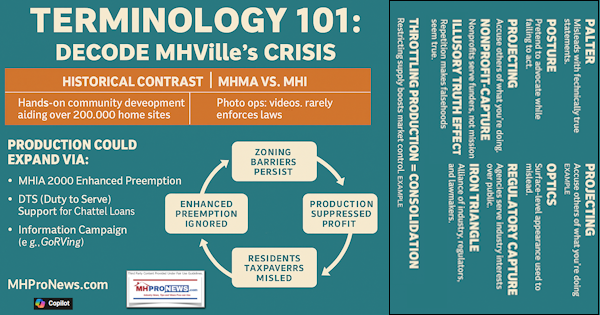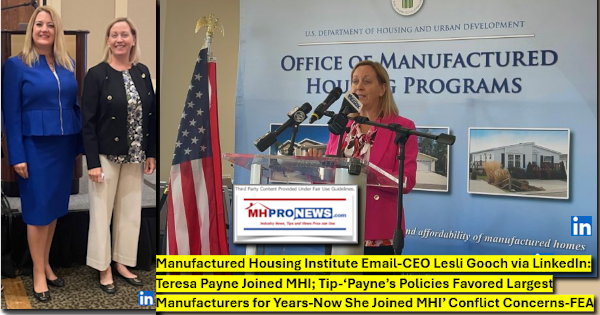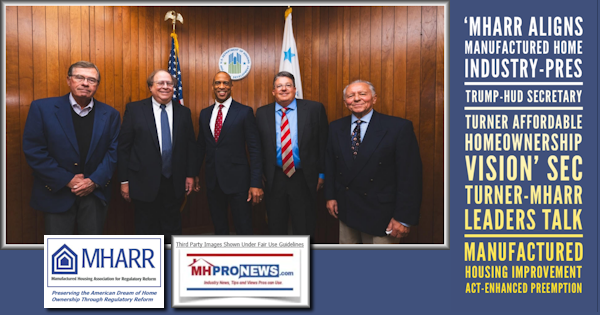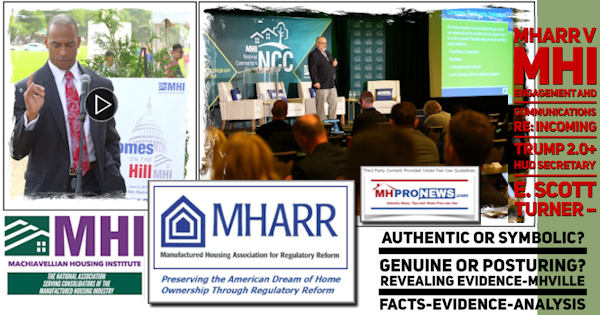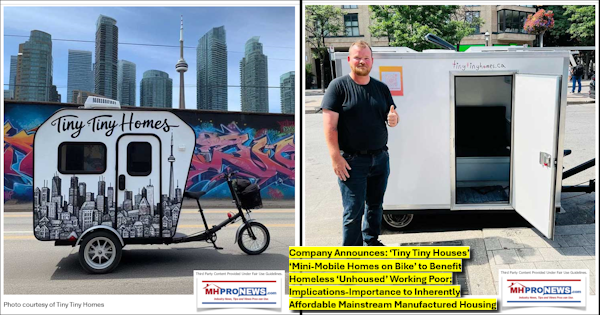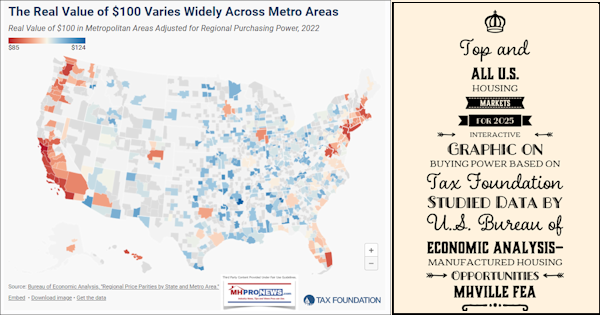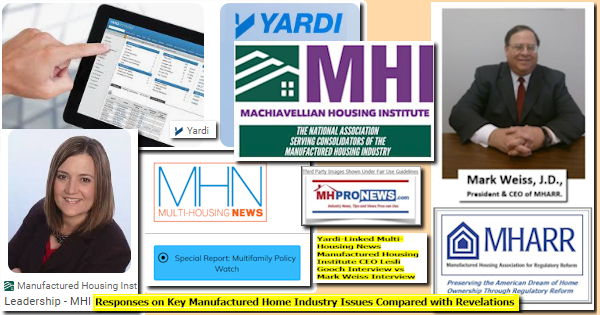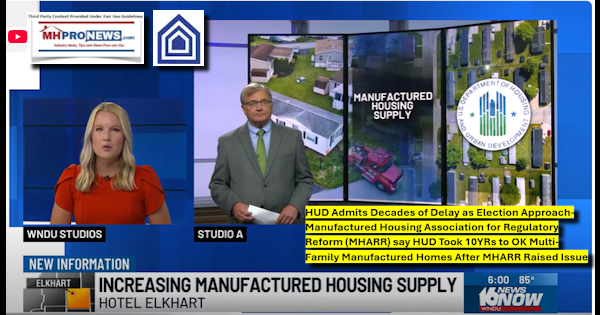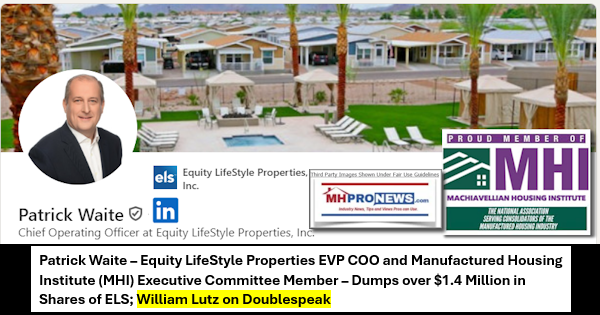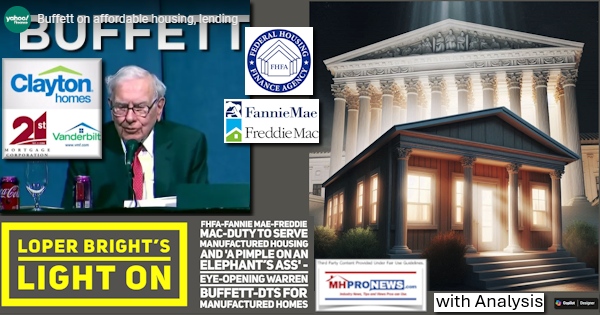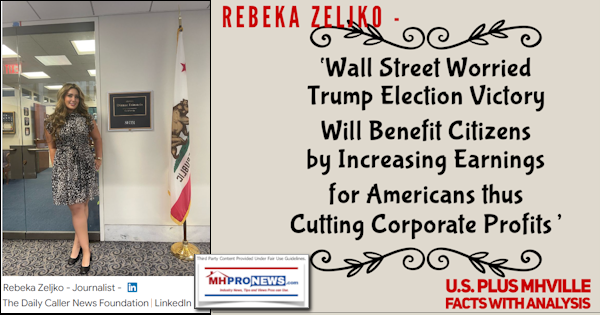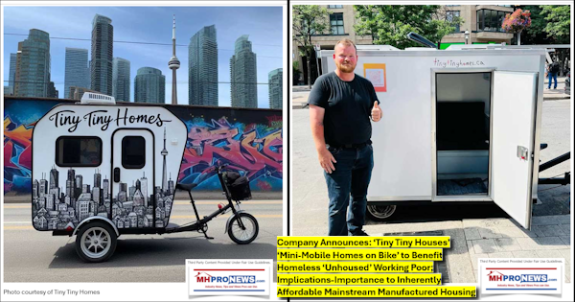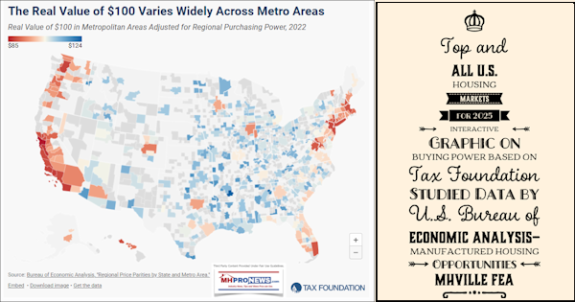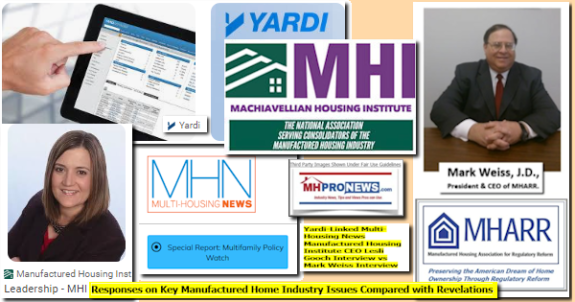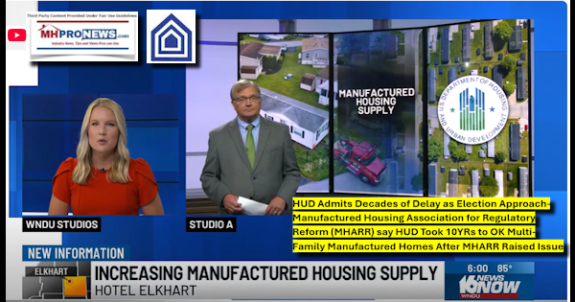Reminder: like so many of you, we love the manufactured housing industry, and believe strongly in its future. Good news exists like the wine that cheers us ahead; troubling news is there for us to identify, navigate and overcome so our home owners and we as professionals can grow even more.
 Let’s note the rising new home MH shipment report, linked here, and look at a positive step forward.
Let’s note the rising new home MH shipment report, linked here, and look at a positive step forward.
DC Complexity
MHI issued a statement, which reads in part as follows:
“The U.S. House of Representatives has approved an amendment by Rep. Peter Welch (D-VT) to increase the flexibility for low income families to use a Section 8 voucher to purchase a manufactured home. The amendment was approved by voice vote…”
“This amendment, which was supported by Financial Services Committee Chairman Hensarling (R-TX) and Ranking Member Waters (D-CA), allows vouchers to be used not just for the cost of leasing the land (which is currently permitted) but also for other monthly costs of purchasing a manufactured home loan, including mortgage payments, property tax, and insurance. The change would allow families that receive a tenant-based Section 8 voucher to help pay for an alternative to renting an apartment – allowing them to actually purchase a home. The amendment does not provide any direct funds or require anyone to use a voucher to live in a manufactured home. However, with this change the approximately 2.1 million Section 8 voucher holders in America will now have the option to use their Section 8 voucher to buy a manufactured home.
“The broader bill that now includes this provision, H.R. 3700, the Housing Opportunity through Modernization Act, was passed by the U.S. House of Representatives by a vote of 472-0. It will now be sent to the U.S. Senate for consideration.”
Among the comments from readers on this was this:
“More than ten years ago at an MHI convention (name withheld) suggested to Barney Frank that this was the one thing gov’t could do which would help everyone. It went nowhere as he wasn’t listening.
Under the right circumstances this measure could be the most exciting thing since the HUD Code.
But, things are never as good or as bad as one thinks. This does however, have the potential to really help. Why piss away apt rent money? Let people use that money to buy their MH.
Now let’s see the details and hope for the best.”
The reason the Masthead will refer to this as DC Complexity is this easily overlooked part of the MHI release:

“This amendment, which was supported by Financial Services Committee Chairman Hensarling (R-TX) and Ranking Member Waters (D-CA), allows vouchers to be used…”
Recall that it was Maxine Waters that recently lead a public charge to have Clayton Homes investigated by the Department of Justice?
We shouldn’t look sideways at this potential for this gift to MH. Congressional Representative Waters is on the attack on MH on one topic, and yet supporting MH on this issue. That reveals how complex DC can be.
In this political environment, it doesn’t pay to burn a bridge in the nation’s capitol, does it?
Unreported in the release where acknowledgments of others who have publicly called on HUD for like reforms, including MHARR, MHI and another as seen from this link here.
Seattle Times –The Beat(ing) of Warren Buffett’s Berkshire Hathaway Clayton Homes and MH lending goes on…
The news alert read like this…
Washington state moves to protect mobile-home buyers
Center for Public Integrity
The ongoing investigation of the industry, “The Mobile-Home Trap,” has focused on Clayton Homes, a company owned by Warren Buffett’s Berkshire …
In the wake of the above and related, we received this comment that was initially sent on the record by a well know industry leader, and then a follow up message requested it not be on the record.
“Tony,
In my opinion the Section 8 MHI posting and the DOJ investigation of Clayton Homes financial entities appears to be a concert conducted to appeal to the 98%ers and to get local NIMBY’s to remake the LLC communities into a new type of affordable housing.
The goal is to offset troubling local affordable housing issues nationwide. Since Socialism and Rent Control appear to be a Democrat and Progressives theme and a claim to equality in housing. Only one “Gotcha” is needed to validate and prove Clayton Homes finance arm’s troubles.
The trend and recent actions clearly shows a path to change for the future of HUD (Code manufactured) housing.” (Editor’s note – the words “Code manufactured” – was implied, but not in the original, and was inserted above for clarity of meaning).
Follow ups made it clear that this writer wasn’t throwing someone under the bus, nor necessarily favoring what is happening on this issue. Rather, that professional suggests that the HUD Code MH and MHC industries are being forced into changes, whether it wants them or not.
About Lesli Gooch’s Op-Ed
Marty Lavin, JD, is a successful, award-winning attorney who’s business interests included MH lending, communities and retail sales. His opinion is worth noting, because he worked with one of the GSEs during the 2000s. When he read Dr. Gooch’s OpEd, he shared the following comment on the record to us:
“I think Dr. Gooch is very well intended, but the industry position doesn’t necessarily align with the ends of the GSEs. Perhaps a better understanding of their position might lead to a better outcome…if that is possible. It’s much more than just helping consumers buy homes. The GSEs need these folks to be able to stay in them. Therein lies the rub.”
Once more, a close reading of his observations aren’t a slam on Lesli Gooch, or MHI. Marty Lavin has years of experience working with a particular GSE. He understands where they are coming from. Lavin is applying good reasoning: in the absence of meeting the GSE’s concerns, he believes they won’t voluntarily budge.
MHI-itis?
This leads to a broader issue, one we’ve raised in a slightly different way before.
What is keeping MHI from achieving its goals?
Yes, among other factors, there’s opposition in DC from so-called consumer groups. But those same groups claim to champion manufactured housing as a good solution for affordable quality living.
Manufactured housing and its lending ought to be seen as non-partisan issues. Yet all to often, it’s precisely in political and ‘crony capitalist’ terms how MH and it’s lending are being portrayed. That’s tragic, because the status quo is harming millions of owners of low cost MH, and untold thousands of buyers annually who in pre-Dodd-Frank had financing, and thanks to the CFPB’s 2014 implementation of those rules, today do not.
We know that DC works differently than many states do. But the principles are similar. State governments and the federal government mirror each other in the sense there is an executive, legislative and judicial branch and then there are executive branch agencies that enforce rules and regulations. There is lobbying at the state level akin to what happens in Washington, DC.
We know a number of MH state associations that are getting the job done for their members, while working in concert whenever possible with consumer groups. Let’s suggest that’s a model that MHI needs to better implement.
Why? Until we either get consumer groups on the same page as the industry – for the sake of consumers and for

professionals alike – there exists an often adversarial relationship with non-profits such as Ishbel Dickens of NMHOA and Doug Ryan at CFED, to name but two examples.
Those groups are linked with what is going on in the ongoing media war launched against Clayton Homes et al, as the Center for Public Integrity’s own release indicates, “The ongoing investigation of the industry, “The Mobile-Home Trap,” has focused on Clayton Homes, a company owned by Warren Buffett’s Berkshire…”
Our Daily Business News take on this thorny issue is below.

DC Talk and DC Complexity
Once more, your Masthead scribe will be in DC to listen to what is going on there, first hand. The rules of the association are clear. I can’t report on what goes on in the meeting, but what is said in the hallways outside the meeting rooms and beyond the event are fair game.
We’ll see what that hallway and beyond – DC talk – will reveal.
We still want to see S 682 passed, because it is good for consumers and good for the industry. There are those who say Preserving Access is “dead, dead, dead” – that we might at best save the MLO comp rule portion of it.
Another well placed source says the entire bill is still at play, and that’s exactly why the Seattle Times et al are continuing their assault on MHI’s backed bill.
Is passage of the bill doable? Yes. Will it get done the way things are moving now? What do you think? We Provide, You Decide. ©
Quoting from the MHI website…
“MHI Mission Statement – MHI is the national trade organization representing all segments of the factory-built housing industry. MHI serves its membership by providing industry research, promotion, education and government relations programs, and by building and facilitating consensus within the industry.”
Let’s ask: is this mission statement being fully lived up to?
If the mission statement were a reality, would we be further along or perhaps have even already passed the highly modest CFPB/Dodd-Frank reform legislation sought in HR 650-S 682?
What the high numbers of comments, forwards and thousands of reads on our recent Masthead on a related topic suggests is that change must come to MHI, the only question is how and when.

We want the bill passed, for reasons noted numerous times over the years. It might get passed with no changes at MHI, just rocking along with business as usual there. But my sincere concern is that without change, we are whistling in the wind.
 I’m looking forward to visits on Capitol Hill.
I’m looking forward to visits on Capitol Hill.
We’ll catch up with another Masthead after the MHI meetings, perhaps next Wednesday.
Until then, stay current with Matthew Silver’s Daily Business News, and you’ve simply got to read Jan Hollingsworth’s latest:
http://manufacturedhomelivingnews.com/lifestyles-of-the-rich-and-frugal-manufactured-mansions-take-their-place-in-the-california-sun/
Your insights and thoughts? They’re valued.
Let’s end as we began. Good news cheers us on, issues are there for us to learn from and navigate. Onward! ##


